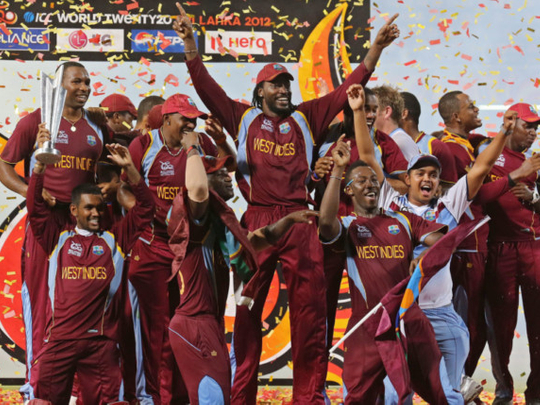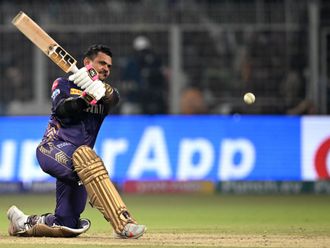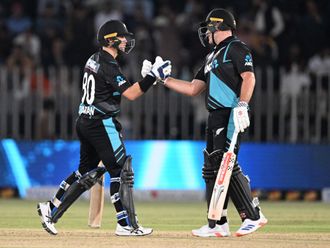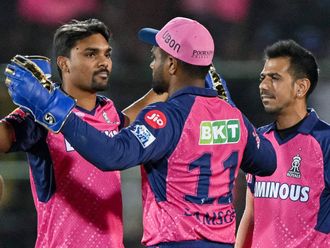
Dubai
A piece of statistic sums up the unpredictability of the contest - the four editions of International Cricket Council (ICC) World Twenty20 Cup so far have produced different winners. As the fifth edition gets under way in Bangladesh, one can lay a wager that there could be a new champion again.
Every team has a chance to win with even a non-Test playing nation capable of stunning any opponent. Reputation of the players or their past record has never helped any team to win matches.
In the inaugural World Twenty20 Cup 2007 in South Africa, Zimbabwe shocked a powerful Australia by five wickets to announce to the world that any strong team on paper can be conquered. Australia were restricted to 138 for nine and Zimbabwe won through an unbeaten knock of 64 from Brendan Taylor with one ball to spare.
Predictions
Similarly, the opening match of the World T20 2009 was supposed to be won by hosts England against Netherlands. England, who were put into bat, raced to 100 for 2 in 12 overs but a disciplined bowling performance from Dirk Nannes helped the Dutch to restrict England to 162 for 5. Despite a top order collapse, Netherlands never lost the focus and pulled-off a tense four-wicket win off the last ball.
When the Twenty20 World Cup came to the sub-continent after being held in South Africa, England and West Indies, many predicted that with Sri Lanka as hosts, a sub-continent team will emerge as the champion. West Indies, riding on some spectacular knocks from Chris Gayle, marked a resurgence to lift the trophy.
Even predictions about what type of players can click in the Twenty20 showpiece has been proved wrong. For example, many believed that Mahela Jayawardene’s classical style of batting may not be suitable for Twenty20 but he is the leading rungetter in the history of this event with 858 runs.
Many initially believed that only fast bowlers can make their mark in T-20, but spinners have proved to be matchwinners as well. Sri Lanka’s Ajanta Mendis is the second highest wicket-taker with 15 wickets and the author of one of the greatest spells — bagging six wickets for just eight runs against Zimbabwe in 2012.
Though pundits of the game have criticised Twenty20 cricket, everyone including the ICC has realised that it is one event that boosts its coffers. Packed stadiums are part and parcel of this event and every cricket fan makes it a point to watch this shortest format of the game. The popularity of the Twenty20 Cup has been so much that it has brought in many new fans into the game.
The Bangladesh event will have a few ‘firsts’. While the number of teams have been increased from 12 to 16 this year, a new format is also being introduced. Based on the Reliance ICC Twenty20 Team Rankings as on October 8, 2012 top eight teams will play directly in the Super 10 stage, while hosts Bangladesh and Zimbabwe, who finished outside the top eight, will participate in the first round that will be held from March 16-21.
Super 10 stage
The first round of the men’s event will comprise eight teams that will be divided into two groups of four teams each, with the table-toppers progressing to the Super 10 stage.
Cricket fans around the world will now be glued on to the action in Bangladesh with many questions on their mind like who will be the new champion, whether anyone can shatter the 12-ball half century by Yuvraj Singh, and fastest century off just 50 balls from Gayle or even better Mendis’ greatest spell of six wickets for eight runs.
Over to Bangladesh!












